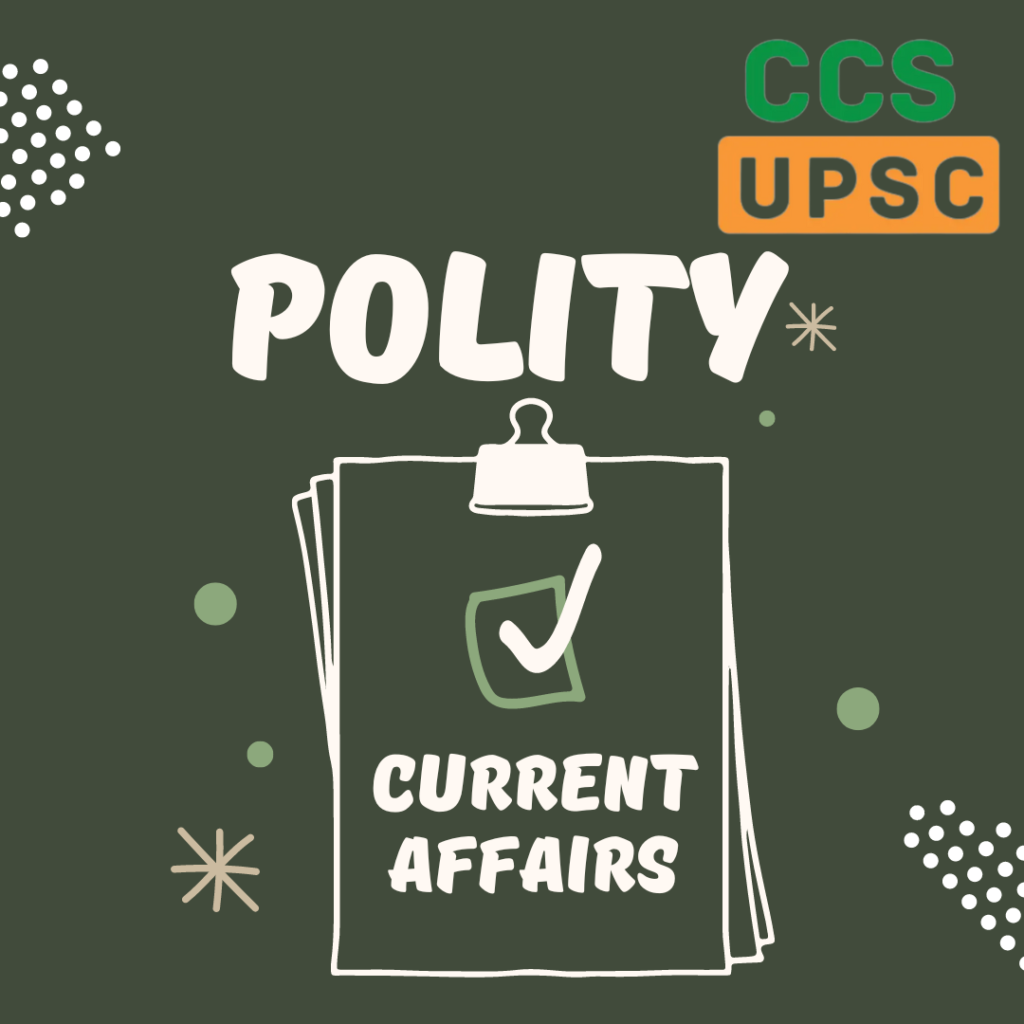In Context
∙ The 17th Lok Sabha held its sessions between June 2019 and February 2024.
About
∙ In the five years, Lok Sabha functioned for 88% of its scheduled time, while Rajya Sabha worked for 73%.
Key Bills Passed Include:
∙ The Women’s Reservation Bill, 2023, the J&K Reorganisation Bill, 2019, the Appointment of CEC Bill, 2023, three Labour Codes, the Digital Data Protection Bill, 2023, and three Farm laws (which were later repealed).
∙ Three Bills replacing the IPC, 1860, the CrPC, 1973, and the Indian Evidence Act, 1872 were also passed.
∙ Over the years, the time spent on budget discussions in Lok Sabha has reduced.
∙ The 17th Lok Sabha discussed the annual budget for 35 hours on average (in the Lower House).
Lok Sabha
∙ Lok Sabha is composed of representatives of the people chosen by direct election on the basis of the adult suffrage.
∙ As per the provision of Article 79 of Indian Constitution, the House of the People, the Lok Sabha is the lower House of the parliament.
∙ The maximum strength of the House envisaged by the Constitution is 552.
∙ At present, the Lok Sabha has 543 seats filled by elected representatives.
∙ The term of the Lok Sabha, unless dissolved, is five years from the date appointed for its first meeting.
Functioning of Lok Sabha
∙ Presiding Officer: The Lok Sabha is presided over by the Speaker, who is elected by the members of the House.
∙ The Speaker plays a crucial role in maintaining order, conducting the proceedings, and interpreting and enforcing the rules of the House
∙ Legislative Functions: The primary function of the Lok Sabha is to enact laws.
∙ Bills (proposed laws) can be introduced in the Lok Sabha by ministers or private members (individual MPs who are not part of the government).
∙ If a bill is passed by the Lok Sabha, it is then sent to the Rajya Sabha (upper house) for consideration.
∙ If both houses agree on the bill, it is sent to the President for assent and becomes law.
∙ Scrutiny of Government: The Lok Sabha exercises control over the executive (government) by holding it accountable for its actions.
∙ Members can ask questions, participate in debates, and raise issues of public importance through various parliamentary instruments such as debates, discussions, and motions.
∙ Budgetary Functions: One of the most significant functions of the Lok Sabha is the approval of the budget.
∙ The annual budget, presented by the Finance Minister, is subject to debate and approval by the Lok Sabha.
∙ Representation of People: Members of the Lok Sabha represent the interests of their constituents (the people who elected them) in the Parliament.
∙ They raise concerns, discuss issues, and advocate for policies that benefit their constituencies.
∙ Committee System: The Lok Sabha has various parliamentary committees that specialize in different areas such as finance, defense, and social justice.
∙ These committees play a vital role in scrutinizing legislation, examining the functioning of government departments, and making recommendations for improvement.
Challenges in the Functioning of the Lok Sabha
∙ Disruptions and Obstructionism: Members often resort to disruptive tactics such as shouting slogans, creating a ruckus, or staging walkouts, which hampers the smooth functioning of the House and prevents constructive debate and discussion on important issues.
∙ Low Attendance and Participation: Many MPs may not actively engage in legislative processes, including attending sessions, contributing to debates, or participating in committee work, which undermines the effectiveness of the Lok Sabha as a representative institution.
∙ Inadequate Legislative Scrutiny: Due to the sheer volume of legislative business and limited time for scrutiny, bills may not receive adequate attention and scrutiny during the legislative process.
∙ This can result in hastily drafted or poorly thought-out legislation, leading to unintended consequences or loopholes.
∙ Lack of Diversity and Inclusivity: The Lok Sabha may not always reflect the diversity of India in terms of gender, caste, religion, and regional representation.
∙ This lack of diversity can impact the inclusivity of decision-making processes and the representation of marginalized communities.
∙ Party Discipline and Whipping: There’s often criticism of excessive party discipline and “whipping” in the Lok Sabha, where members are expected to follow the party line rather than voting according to their conscience or the interests of their constituents.
∙ This can impact independent thinking and diminish the role of individual MPs.
∙ Limited Role of Opposition: In a majority government scenario, the opposition’s role in holding the government accountable may be weakened.
∙ This imbalance can lead to a lack of effective checks and balances, potentially undermining democratic principles.
Way Ahead
∙ Addressing these issues requires concerted efforts from all stakeholders, including MPs, political parties, the presiding officers, and the public. ∙ Strengthening parliamentary norms, promoting constructive debate, ensuring greater accountability, and fostering inclusivity are essential for enhancing the functioning and effectiveness of the Lok Sabha.


